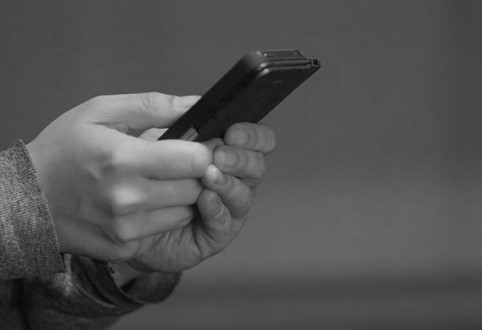
ΑΙhub.org
Digital health interventions: predicting individual success using machine learning

Health apps could be better tailored to the individual needs of patients. A statistical technique from the field of machine learning is now making it possible to predict the success of smartphone-based interventions more accurately. These are the findings of an international research team led by the University of Basel and reported in the Journal of Affective Disorders.
Health apps are increasingly used in the context of physical and mental illnesses. Usually, they do not replace traditional treatments but act as adds-on – for example, to improve mood in cases of depression. Smartphone-based interventions are of particular relevance in low or middle-income countries, where traditional treatment options are not always or only partially available.
Predicting improvement in mood
However, the impact of these apps varies from individual to individual. And even in the same person, the interventions have stronger or weaker effects depending on the situation. A research group from the Faculty of Psychology at the University of Basel, led by Professor Marion Tegethoff and Professor Gunther Meinlschmidt, investigated how the impact of smartphone-based interventions can be predicted more accurately. To this end, they used data from 324 smartphone-based interventions that aimed to regulate mood.
They employed a statistical technique from the field of machine learning, a specific form of the random forest method. This classification method can be used to process large volumes of data. The strength of this procedure is that it allows researchers to offer the decision trees relevant and theory-driven information, such as how tired or restless a subject is. The “learning forest” combines these characteristics with each other in multiple different ways and allows for predictions that reflect the complexity of real life more effectively than those of traditional prediction methods.
Halving the number of unsuccessful uses
In the case described, approximately 6 out of 10 interventions resulted in no mood improvements. In the interventions predicted to be successful by machine learning, however, this number was only around 3 in 10. Hence, with this new technique, the number of unsuccessful uses could be cut by half.
“We know that many patients quickly abandon digital interventions after they start using them. If an app is only effective in one out of every two or three uses, people soon lose motivation and see little point in using it any longer. Therefore, the new approach could potentially lead to patients using smartphone-based interventions for longer periods,” explains Professor Meinlschmidt, first author of the article. Further, the study delivers important information on how interventions can be better tailored to the individual, in terms of personalized treatment, in future. One could envisage using the approach in many other fields where mobile apps are applied.
The study was supported by the Swiss National Science Foundation and the National Research Foundation of Korea, and conducted in collaboration with Korea University, Harvard Medical School, the International Psychoanalytic University Berlin and RWTH Aachen, under the leadership of the University of Basel.
Read the research paper to find out more:
Personalized prediction of smartphone-based psychotherapeutic micro-intervention success using machine learning
Gunther Meinlschmidt, Marion Tegethoff, Angelo Belardi, Esther Stalujanis, Minkyung Oh, Eun Kyung Jung, Hyun-Chul Kim, Seung-Schik Yoo, Jong-Hwan Lee
Journal of Affective Disorders (2019)









